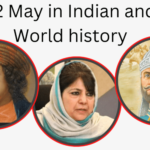Each year, on February 25, the people of Kuwait joyously commemorate the ascension of Sheikh Abdullah Al-Salim Al-Sabah to the throne in 1950. This significant day marks not only the beginning of his exceptional leadership but also the dawn of Kuwait’s independence from British rule in 1961.
History
In 1961, Kuwait gained independence, and Sheikh Abdullah Al-Salim Al-Sabah became the emperor. This event, celebrated as National Day, marked the end of British protection against the Turkish invasion. The Constitution of Kuwait, signed into law on November 11, 1962, stands as a testament to Kuwait’s commitment to democratic principles. Officially known as the ‘State of Kuwait,’ the country has emerged as a global economic and commercial hub. Boasting the world’s sixth-largest oil reserves, Kuwait ranks as the fifth richest country globally. The Emir’s dedication to development projects aims to enhance Kuwait’s global standing, attracting investments and fostering prosperity for its citizens.
The Leadership of Sheikh Abdullah Al-Salim Al-Sabah
Sheikh Abdullah Al-Salim Al-Sabah, born in 1895, was a visionary leader who played a pivotal role in shaping modern Kuwait. His reign saw the establishment of the Constitution of Kuwait and the Parliament of Kuwait in 1962, solidifying the nation’s commitment to democracy and governance. Sheikh Abdullah’s determination to end British rule culminated in the signing of a historic treaty, freeing Kuwait from its status as a British protectorate.
Historical Timeline
A glance at Kuwait’s history reveals its evolution from a small fishing village in 1613 to a thriving trade and boat building site by the late 18th century. The Al-Sabah family assumed power in 1756, and by 1961, Kuwait gained independence, becoming a beacon of progress and prosperity.
Celebrating Kuwait National Day
Kuwait National Day is a spectacle of lights, colors, and jubilation. People decorate their houses with vibrant lights, flags, and candles. Historical landmarks like the Kuwait National Museum and Kuwait Towers dazzle with illumination. Fireworks light up the night sky, and the streets come alive with celebrations that last into the early morning hours.
Unique Celebration Date
While most nations celebrate their independence day on the date of liberation, Kuwait National Day takes place on February 25. Originally set for June 19, the date was moved due to extreme heat. Since 1963, Kuwait has celebrated National Day on February 25, commemorating Sheikh Abdullah Al-Salem Al-Sabah’s ascent to power in 1950.
Kuwait National Day in Modern Times
As part of the 2019 National Day celebrations, Kuwait set a world record for the longest flag. Over 4,000 students paraded with a 6,624-foot Kuwaiti flag, recognized by the Guinness World Records. Such grand displays reflect the pride and unity of the Kuwaiti people.
Observing Kuwait National Day Traditions
On National Day, Kuwaitis celebrate with feasts, family gatherings, public events, and fireworks. The Kuwaiti flag, with its symbolic colors of white, black, green, and red, is displayed with pride on the streets. Receptions by embassies, consulates, and permanent missions add an official touch to the festivities. #happy Kuwait national day
Important Facts About Kuwait
- Kuwait ranks as the 21st richest country globally, thanks to its vast oil reserves.
- The Burj Mubarak al-Kabir, set to be completed in 2030, will stand as the world’s tallest skyscraper at 3,284 feet.
- Kuwait holds the title of the 11th most obese country, with 73.4% of its population classified as obese.
- Around 70% of Kuwait’s population comprises expatriates, showcasing the country’s cultural diversity.
- Kuwait granted women the right to vote in 2006, marking a significant milestone in its journey toward gender equality.
Why Kuwait National Day Matters
National Day serves as a platform for Kuwaitis to celebrate their unique cultural heritage and pride. It fosters a sense of belonging and strengthens cultural bonds. Kuwait National Day encourages the acknowledgment of Kuwaitis’ contributions to the nation’s peace and progress. It’s a time for unity, love, and solidarity. Use National Day as an opportunity to explore Kuwaiti cuisine, music, and history. It’s a day to embrace new experiences and celebrate Kuwait’s rich cultural tapestry.
In conclusion, Kuwait National Day is not just a date on the calendar; it’s a journey through history, a celebration of progress, and a testament to the resilience and unity of the Kuwaiti people. As we commemorate this auspicious day, let us join our Kuwaiti brothers and sisters in rejoicing and wishing them a Happy National Day!












